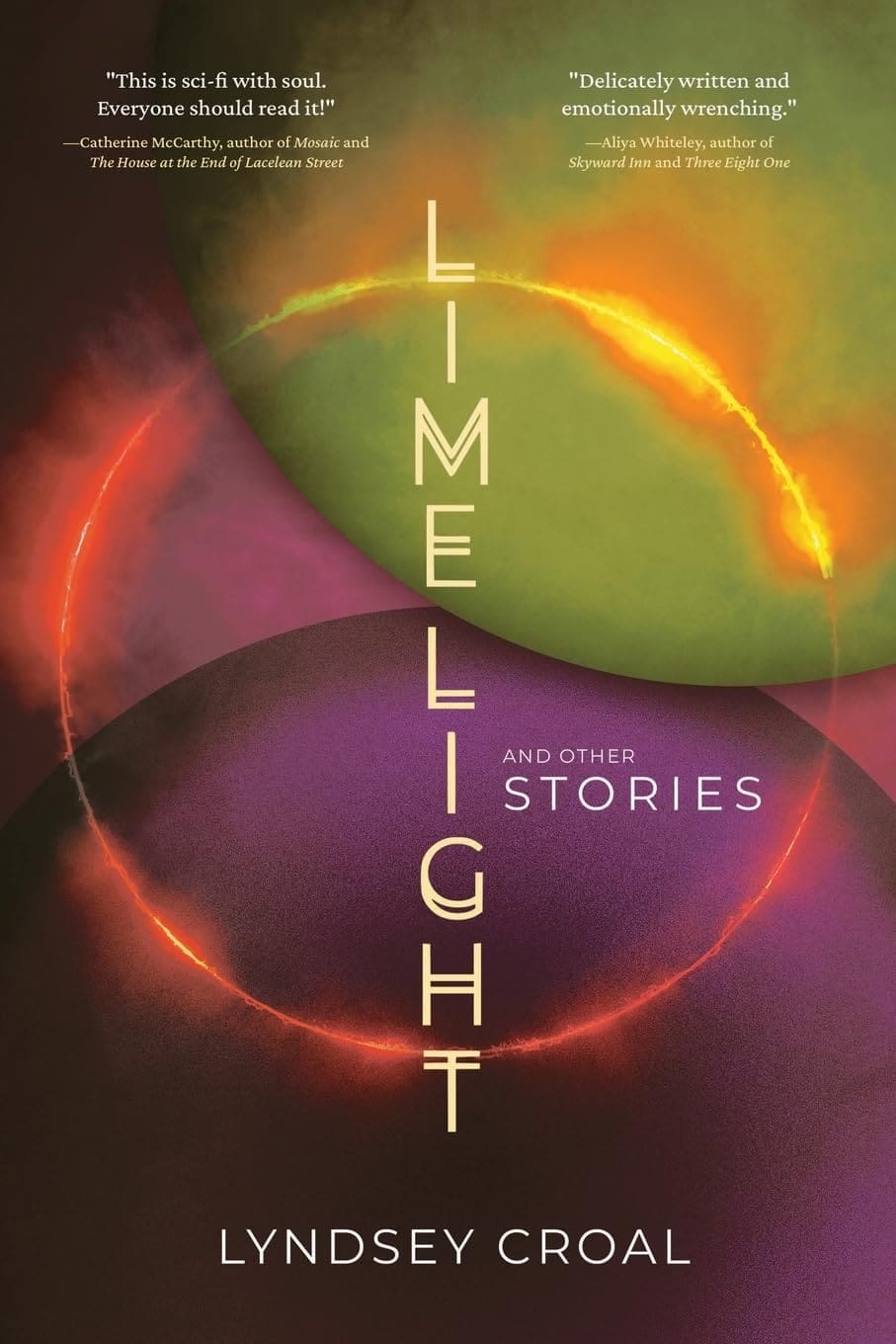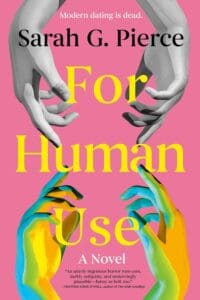
In space, no one can hear you scream sob like a baby
Publisher’s Synopsis
Limelight is a collection of over twenty high-concept dark science fiction tales from near and far futures.
Lyndsey’s work explores the bright potential and the dark reality of our near and far futures through the lenses of connection and loneliness, love and heartbreak, autonomy and exploitation, desire and greed, wonder and despair. If you’ve ever imagined alternate futures, craved answers to the mysteries of the universe, or feared what might be lurking just beyond our reach, then you need this collection.
Review
With Limelight and Other Stories, from Shortwave Press, SFF and horror short story supremo Lyndsey Croal has put together a collection of remarkable sci-fi tales that stun with their imagination, brutality and heartbreak.
Croal’s tendency for wickedly dark, violently imaginative and creepily plausible future tech stories was first spotlighted in last year’s alternate-reality-tech-gone-wrong novella, also with Shortwave Press, Have You Decided on Your Question.
But with Limelight, Croal takes such Black Mirror-esque themes to the next level with a frankly brutal array in the first half, focusing on the near future – and then takes us on wild journeys of equally dark imagination into the far future in the second half. There is hope and beauty threaded throughout these futures – but you might have to dig through some emotional wreckage and horrific tech to find it.
The opener Patchwork Girls sets the scene, and throws a match on that scene and torches it for kindle wood. A human android, with fully human parts, is forced to work in the film industry, being constantly killed to ensure realistic on-screen deaths and then resurrected. Croal writes this from her POV, increasing the readers’ torment by an average of a thousand, and turns a sick tale into a poignant one, and then from nowhere laces some hope or at least heroism from this carnival of nightmares. This story left me drained and shook. My god, what an opener.
One of Croal’s perennial fascinations is with our relentless drive to improve ourselves with tech and how this is inevitability manipulated by the capitalist corporatism which seems set to plague us even in imagined futures. In Better Self, the endless cycle of ads is combined with the corporate version of the healthy living obsession via a worker who is forced to watch the ads as they’re literally installed in her retinas as part of her employment – and these ads seem determined to make her take a pill to lose weight. It’s a gleefully sinister fable on the cost of corporate self improvement.
Similar corporate body changing hijinks are at work in (Un)censored, in which a woman with a chip installed to regulate her moods finds it working a little too well. Croal’s imagination is at its peak in these tales of the logical endpoint of body tech and corporate interference in our lives, and we are sent down chillingly inevitable avenues; this melding of late stage capitalism with biotech feels eerily plausible.
In the titular story Limelight, in which a young woman is brought back from near death by experimental tech, only to discover that her parents have altered her and improved her, turning her into a perfect version of her previously “flawed” self, Croal skilfully combines two of her other obsessions: whether we lose what defines us when we allow technology to offer unimagined advances, and how good intentions turn bad, in this case the terrifying desire for control of the mother over her “perfect” version of her daughter. It’s a creepy tale laced once again with a strong beat of hope that builds to an almost agonising chorus as you wonder if this time things will turn out alright.
Then, just as we are reeling from the brutalities and desperate brief joys of the near future, we are flung into the far future in the second half of stories. Plausibility is out; wildly imaginative is in, and some of the planetscapes Croal conjures are astonishing; on one planet, bees are rescued to be robotically restored and sent back into service in the dry zone, their rescuers dreaming of the Green Horizon; on another, a heart transplant saviour may come in the form of hearts grown as plants.
Elsewhere we see Croal playing around with genre, and leaning into her extensive horror background; in The Gathering, a space trader collects valuable dead souls, but there is a terrifying reckoning to be had back on his spaceship, where space becomes another haunted house. In the astonishingly creative genre mash Transference, robotics meets pure magic in a sci-fantasy blend that demands its own book.
But where these far future stories come into their own is in Croal’s obsession with the concept of loss – and how this is emphasized and strangely poignant in the vast careless wastes of space. In A Ring Around, a simple conversation with a well-meaning spaceship AI and a confused passenger wondering where his wife is broke me into two pieces; it’s in a simple back and forth like this that Croal’s beguilingly simple prose comes alive to tear you apart; see also The Rift Between Us, where a grieving lover gets the chance to visit an actual space afterlife in the hopes of finding their lost one.
Sometimes these stories of loss in space end in tech-fuelled denial, sometimes they end in poignant, beautiful closure, and sometimes – as in the triumphant, astonishing, ovation-summoning closing story Farewell my Prince, Croal finds a third way – and like all her other ways, it will still break your heart even as you cheer.
This is the must read collection of the year, not just for sci-fi fans but for anyone with a heart… Croal is a true visionary, and her vision will destroy you in terrible and beautiful ways.
Limelight and Other Stories is available from 3 September from Shortwave Press; you can order direct from Shortwave here









Leave a Reply